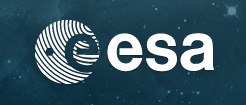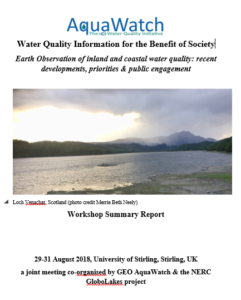In February 2019, ESA kicked off the CCI project on Lakes, as an
essential climate variable. The main objective of ‘lakes cci’ (http://cci.esa.int/lakes) is to
exploit satellite data to create the largest and longest possible
consistent, global record of five lake parameters (Level, Extent,
Temperature, Ice cover, Reflectance) for evaluating how lakes play the
role of proxy, regulator and integrator of climate change.
In this initial phase, we have prepared a survey to determine some
basic requirements for data exploitation.
The anonymous ‘lakes cci’ questionnaire (just 12 simple questions in
less than 5 min) is available at the following link.
Inputs from the AquaWatch community (preferably by 15 June) will be
very much appreciated:
https://forms.gle/LvTADHLDBKEKF6KaA
For more information please write to: cci-lakes.contact@cls.fr





